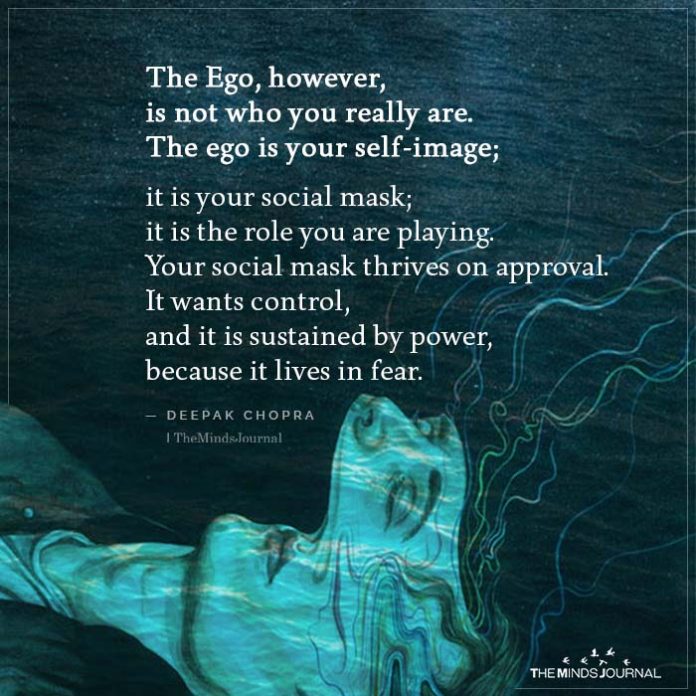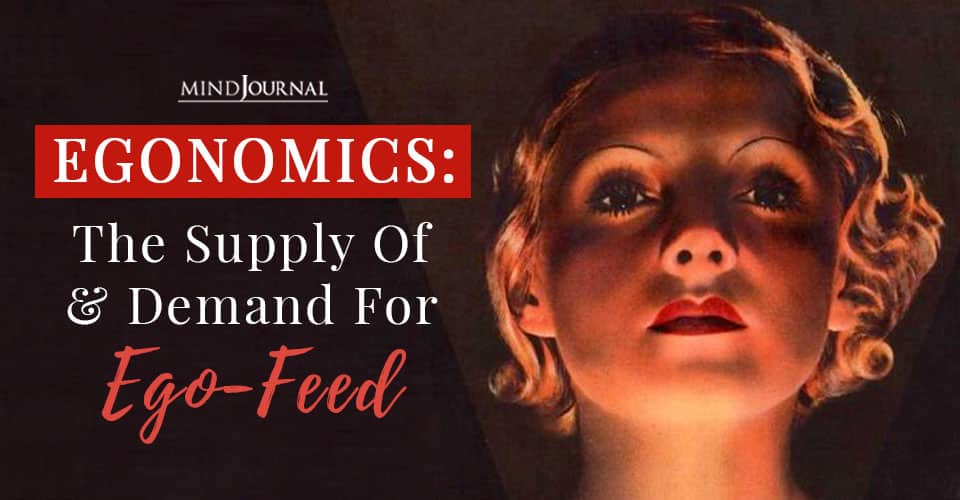EGONOMICS : How much affirmation do you need and How much do you get. The Supply of and demand for ego feed
The physical sciences have their methods for modeling “dynamics,” the interaction of lots of things. We can measure changes in distance, mass, speed, and volume, both of individual things and of populations of them.
In the physical sciences, however, there are no such qualities as good and bad, in other words, of value, worth, or usefulness. Value is unavoidable in the life and social sciences. To talk about a biological trait as “functional” is to say that it is useful, of value to the organism, given the organism’s preferences. Likewise and obviously, psychology is largely about tracking the dynamics of value: what people want and don’t want.
Of all of the life and social sciences, which one offers the most subtle and sophisticated method for modeling dynamics of value?
I’d start by saying fiction does an impressive job of modeling it, though only impressionistically. I think fiction can capture the vast tangle of conflicting human appetites better than academic psych research papers. Still, science is after greater precision than can be captured in fiction. Fiction is loose and evocative. Science is tight, though often dry.
Of the sciences, I’d say it’s economics that does the best job. In economics, we model changes in the dynamic supply of and demand for valuable things and services.
Economics was the obvious place to start to develop such value-modeling, because, in economics, we can start with an abstract unit of generic value: money. Money gave the field a way around a sticky moral issue. What’s worth valuing? What’s good? What’s bad?
The real-world answer is, it depends. The moral, idealistic answer is anyone’s guess. People argue a lot about what’s valuable.
Money is great for sidestepping the question of what’s of value. Money is “fungible,” the economics term for exchangeable, tradeable, or translatable into whatever value anyone wants. Economists can work out a dynamics of value without committing on what’s of value. Economics works whether people value peace on Earth or a gold toilet seat.
Having started with an abstract measure of value, economics’ modeling methods have migrated to other abstract values. For example, these days there are “attentionomics,” which studies the supply of and demand for attention. Biologists have likewise applied economic methods to modeling the dynamics of functional (useful, valuable) biological traits.
We, humans, are a different kind of organism. Through our powers of language, we have self-awareness and self-consciousness. We value self-awareness, though we rather dislike self-consciousness, which is kind of funny when you think about it. The terms sound synonymous. What is the difference?
Want to know more about how you can reign in your ego? Read Unmasking The Ego: How To Take Off The Mask and Be Your True Self
We like to like what we see in ourselves. We do not like not liking what we see in ourselves. I’d prefer to look down and see a swell fellow. I’d prefer not to look down and see some loser dork.
The difference between self-awareness and self-consciousness isn’t in the seeing but in what’s seen. Both are introspection. One is pleased introspection; the other is displeased introspection.
Ideally, I wouldn’t need to check myself out at all. The only way to do that comfortably is to know that looking down, what I’d find is a swell fellow. If I know I’m great, I don’t have to check, just like if I know my roof is solid, I don’t need to check.
I’d like to get there, but the confidence that I’m a swell fellow doesn’t come easy. So I reassure myself. I give myself self-affirmations, even sometimes aloud, even in public. And I look for signs from the public too, affirmations that I’m A-OK. For example, I check how many people read my articles or like my Facebook posts.
Not just me, mind you. All of us are born with that struggle between liking and not liking what we see in ourselves and wishing for evidence that we’re A-OK, even great. We’d like to feel permanently blessed, but short of that, we’d settle for daily affirmations.
In other words, we have egos to be fed. We, humans, value having a supply of ego-feed. Even those of us who want to be admired for our egoless humility.
Humans value self-affirmation. For what parts of ourselves? That’s fungible. If looks are what you’re going for, then affirmation for being hot. If brains are what you’re going for, then affirmation for being smart. If righteousness is what you’re going for, then affirmation for being righteous.
Rich, famous, talented, lovable, admired for our stamp collections, our cars, and guitars—the list goes on, and if we imagine an abstract currency called ego-feed, we can apply the economic method for modeling the dynamics of value for ego-feed. In other words, egonomics, the supply of and demand for ego-feed.

There is a limited supply of ego-feed, though, given human imaginations, we can give ourselves virtual ego-feed in unlimited supply. Think of any religion you find preposterous—not yours, of course, if you have one, but imagine someone who thinks their (bogus, in your opinion) God loves them. That’s virtual ego-feed. A god could approve of everyone, though that’s not likely any more than “everyone is exceptional.” It kind of takes the feed out of ego-feed to believe that everyone is getting the same ration as you are.
Or think of any fable taken to heart in which one’s own kind (the whites, males, Americans, Christians, Hindus, or Muslims, for example) are made out as the heroes who, though long-suffering, are vindicated triumphantly in the end. Read such myths and get patriotic or racist, and you’ve got an unlimited virtual supply of ego-feed not rationed out evenly.
There’s also a generic supply of virtual ego-feed in any fiction. Watch any blockbuster movie, identify with the hero or anti-hero, and you’ll get a fix of ego-feed even if you are nothing like the hero. ISIS members identify with the heroes of Hollywood movies. Identifying with fictional heroes is a virtual ego-feed to be enjoyed in the privacy of your own mind.
Consider next the demand for ego-feed. It’s variable, not just in that some people want to be seen for their looks and others for their stamp collections, but also in the difference in the quantity of ego-feed people demand.
There are “egoholics” so addicted to ego-feed they’re like hummingbirds which will die if they don’t get nectar every 15 minutes. Some people demand a lot of ego-feed because their lives are so hard. They need some kind of affirmation to offset the abuse they experience.
Want to know more about what you can do when your egonomics gets out of hand? Read 9 Ways to Check Your Ego When it’s Out of Control
Some people demand a lot of ego-feed because their lives are so easy. They expect to be maintained in the manner to which they are accustomed. Such people are often surprised and angry when the ego-feed dries up: for example, the hotties who, as they age, become not-hotties. Where did my ego-feed go?
Temperament alone affects the demand for ego-feed. Some just need to shine a lot. Others are fine disappearing into the woodwork.
There are the egonomic nouveau riche too, people who stumble into a whole lot of ego-feed and go crazy-reckless, overstuffing themselves on it. Rock star biographies often have an element of that. The suddenly well-fed egoholic gets drunk on their ego-feed windfall, thinks they can do no wrong, and ends up doing a lot of wrongs.
There’s a lot to be explored in egonomics. Here I just scratch the surface. On a personal level, it’s interesting to think about our own demand for and supply of ego-feed. Perhaps we don’t get around to thinking about it, because it’s hard to admit that we have egos to feed. We’d rather be admired for our egoless humility.
References:
Here’s a related podcast episode.
Written By Jeremy Sherman
Originally Appeared In Psychology Today
Ego-feeding is probably one of the most self-absorbing things human beings end up doing, and this is where egonomics comes into play. No matter how you feed your ego, be it virtually, physically, or mentally, the more you feed it, the more it will want from you. Egonomics is the perfect way to explain human ego, and how it works most of the time.










Leave a Reply